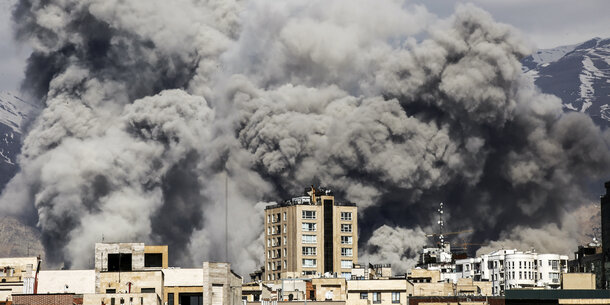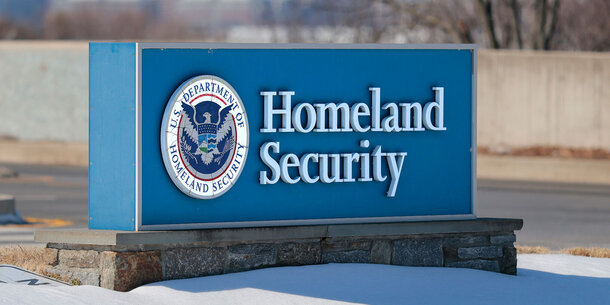There are more than 120 statutory powers that the president can invoke when declaring a national emergency, but the vast majority of the emergencies declared since the National Emergencies Act (NEA) was enacted in 1976 rely on just one of these. 1 That power is the International Emergency Economic Powers Act (IEEPA), which has been the sole or primary statutory authority invoked in 65 of the 71 emergency declarations made during this period.
IEEPA, which became law in 1977, gives the president sweeping powers to impose economic sanctions on persons and entities upon determining that there exists an “unusual and extraordinary threat, which has its source in whole or substantial part outside the United States, to the national security, foreign policy, or economy of the United States.” Over the years, it has been invoked to deal with the proliferation of chemical and biological weapons and weapons of mass destruction, hostile foreign governments, terrorism, transnational crime, cyberattacks, human rights abuses, corruption, interference in U.S. elections, potential intrusions into U.S. communications technology, and perceived threats from the International Criminal Court.2
IEEPA’s use has been expansive geographically as well as thematically. Sanctions have been levied against numerous countries, from Iran and North Korea to Belarus and Côte d’Ivoire. Indeed, IEEPA has been used against persons engaged in certain activities no matter where they might be in the world — and also against groups and persons within the United States. The government’s compendium identifying sanctioned persons and entities, a majority of which are sanctioned under IEEPA, runs to more than 1,400 three-column pages.3
The imposition of sanctions under IEEPA has been called a “financial death sentence.” 4 In most cases, anyone who falls within the legal jurisdiction of the United States is barred from transacting with persons or entities designated as targets of sanctions, and any property of a target that comes within U.S. jurisdiction must be frozen. Put simply, with the stroke of a pen, the president can freeze all of a person’s U.S.-based assets and make it illegal for anyone in the United States (and many outside the country) to conduct any financial transaction with them. If the target is an American citizen or resident, the practical effect is that no one can give them a job, rent them an apartment, or even sell them groceries without the government’s permission.
Americans caught up in IEEPA sanctions have found themselves trapped in a Kafkaesque nightmare that bears little resemblance to the due process that the Constitution supposedly guarantees them. By its own rules, the government is not required to give the target any information about its decision, let alone access to the underlying evidence. Targets may challenge the designation, but the government does not have to provide a hearing, and there is no deadline for resolving a challenge. When targets are able to bring litigation (the sanctions can complicate paying attorneys), courts base their decision solely on the record the government has assembled which may include almost any kind of material, including hearsay — and they must give “extreme deference” to the government’s decision to designate.
As with other powers that presidents can invoke under the NEA, Congress intended for IEEPA to be used sparingly and in extraordinary circumstances. However, national emergencies of all kinds are easy for presidents to declare — and, because of a ruling by the U.S. Supreme Court a few years after the NEA’s passage, they are extremely difficult for Congress to terminate. The result is that presidents’ use of IEEPA is virtually unchecked except in the rare instance of a successful court challenge.
Despite IEEPA’s requirement that a president must declare a national emergency that presents an “unusual and extraordinary threat” before imposing sanctions, the law is used today as a routine foreign policy tool. There has been an average of 1.5 IEEPA emergencies declared each year, with 11 such emergencies declared during the Trump administration alone. Each order may result in the targeting of tens, hundreds, or even thousands of persons or entities. Moreover, IEEPA sanctions often stay in place for years or even decades, with little congressional oversight and no clear metrics to assess their success or failure.
Concerns about IEEPA’s broad powers and the lack of substantial checks on presidents’ use of them are not new. In 1987 a commentator wrote about IEEPA’s flaws: “The criteria for invoking it are vague, Congress has very little to say about its use, and there is no effective way to terminate a use that becomes inappropriate as time passes.”5 But a combination of factors has given a new urgency to the need to reexamine and reform IEEPA. Prominent among them is that President Donald Trump used, and threatened to use, IEEPA’s powers in unprecedented and troubling ways, underscoring the dangers of delegating such potent powers with so few limits on discretion or institutional checks.
This report proceeds as follows. Part I provides background on how IEEPA came into law. Part II describes how various aspects of sanctions under IEEPA work in practice. Part III lays out some concerns regarding how the government has used, does use, and could use IEEPA. Part IV provides an overview of some of the proposed legislative reforms to IEEPA to date, and in Part V we propose a slate of reforms that would limit IEEPA’s potential for abuse while giving the government sufficient latitude to sanction those who threaten U.S. interests.
Endnotes
-
1
See Brennan Center for Justice, “A Guide to Emergency Powers and Their Use,” December 5, 2018, last updated April 24, 2020, https://www.brennancenter.org/our-work/research-reports/guide-emergency-powers-and-their-use. -
2
See Brennan Center for Justice, “Declared National Emergencies Under the National Emergencies Act,” last updated April 22, 2021, https://www.brennancenter.org/our-work/research-reports/declared-national-emergencies-under-national-emergencies-act. -
3
Office of Foreign Assets Control, “Specially Designated Nationals and Blocked Persons List,” March 10, 2021, https://www.treasury.gov/ofac/downloads/sdnlist.pdf. -
4
Spencer S. Hsu, “Chinese Bank Involved in Probe on North Korean Sanctions and Money Laundering Faces Financial ‘Death Penalty,’” Washington Post, June 24, 2019, https://www.washingtonpost.com/local/legal-issues/chinese-bank-involved-in-probe-on-north-korean-sanctions-and-money-laundering-faces-financial-death-penalty/2019/06/2 -
5
Barry E. Carter, “International Economic Sanctions: Improving the Haphazard U.S. Legal Regime,” California Law Review 75, no. 4 (July 1987): 1234, https://scholarship.law.georgetown.edu/cgi/viewcontent.cgi?article=2598&context=facpub.



